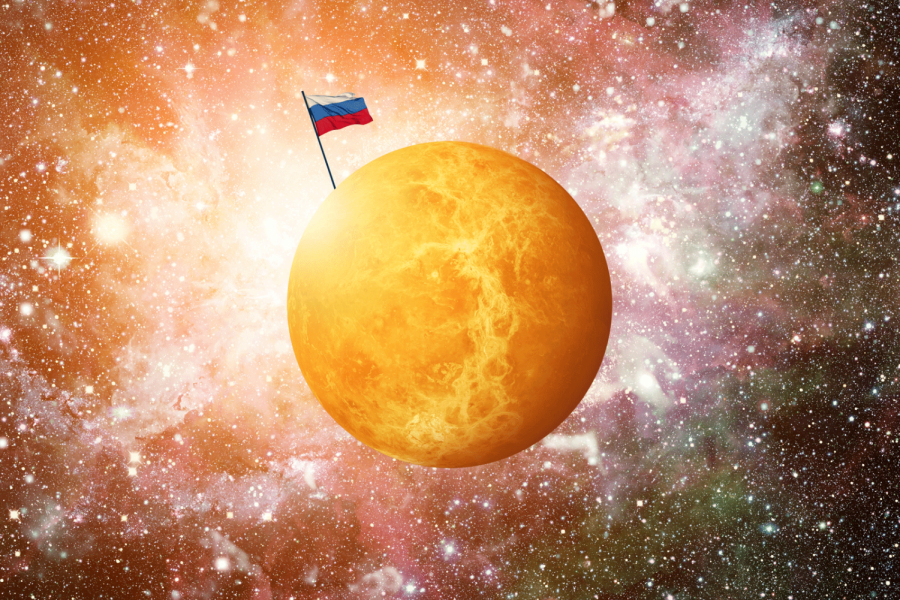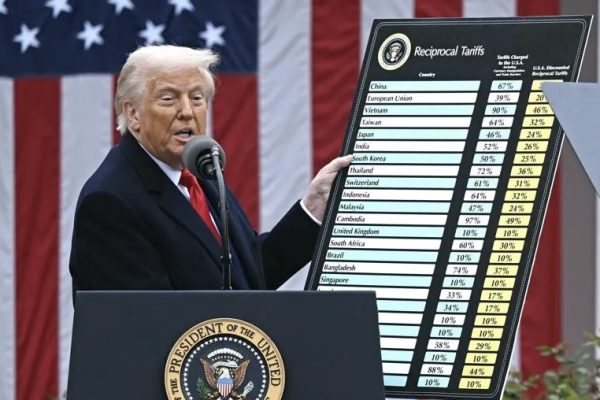What does Russia’s claim on Venus mean?
In September earlier this year, Russia made a strange claim: Venus now belongs to them, it is a “Russian planet.” You might ask, what purpose does that serve? Is there any real worth on Venus, and do they actually have a right to claim a whole planet?
Venus is the planet next door, one closer to the sun, and sandwiched in between Earth and Mercury. In the past, it was speculated that the thick clouds obscuring the Venusian surface were water clouds hiding a vast array of life waiting to be discovered. However, when probes were first sent there in 1990, it proved to be anything but hospitable. Surface temperatures reach 880 degrees Fahrenheit, enough to turn lead into liquid and doom the electronics of any spacecraft ever sent there. Although Venus is not the closest planet to the Sun, it’s still the hottest because of its extraordinary amounts of greenhouse gases, mainly carbon dioxide. Only 30 miles up in the clouds do the temperatures become more like those on Earth and life is still speculated to exist. It’s tens of thousands of volcanoes certainly don’t help living conditions either.
Why, then, would the Russians be inclined to claim Venus as their own? In the past, they have been at the forefront of Venus exploration, especially from 1967-1984, and has since kept its unique expertise in how to carry out scientific research there. Their claim on the planet came the day after scientists discovered phosphine in its atmosphere, a trait similar to Earth.
“Resuming Venus exploration is on our agenda,” said Dmitry Rogozin, head of the Russian space corporation Roscosmos. The Russian state news agency TASS announced that, in addition to the planned joint mission with the US “Venera-D”, it plans to send its own mission to Venus.
So, is the purpose to find life on Venus? According to Russia: Yes. Although life on the surface would be tough beyond our imagining, phosphine in the atmosphere is viewed to be as great a promise of life as a “water world,” like Mars or Jupiter’s moon Europa. If there’s life on Venus, it’s most likely in its atmosphere.
What about the other planets then? Are we at the dawn of a new era of planetary colonization, where countries will battle for the most precious planets? Uranus and Neptune are known to literally have diamond rain below their icy surfaces, as well as in Jupiter and Saturn’s highly pressurized clouds. Retrieving those diamonds would be another excursion altogether, but our ever-improving technology could potentially rise to the challenge one day. In the great vastness of space however, where there are more resources than we could ever consume, what would become of our economy? Diamonds would no longer have any monetary value at all if we could collect them as easily as rainwater. The threat of destroying the entire specie’s economy is a danger that must be carefully considered before we tap into the great wealth of space.
Of course, Mars is the popular favorite for its potential to host human life, and research of the “water worlds” in our solar system is promising, but as we explore, we must exercise the caution we have disregarded too often in the past. Even in the hellish landscape of Venus, the potential for life exists. Much of our planetary neighborhood has that same potential which would be tragic to destroy before being fully understood.









